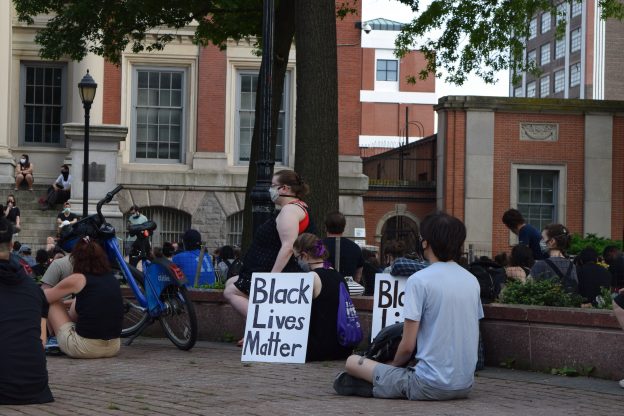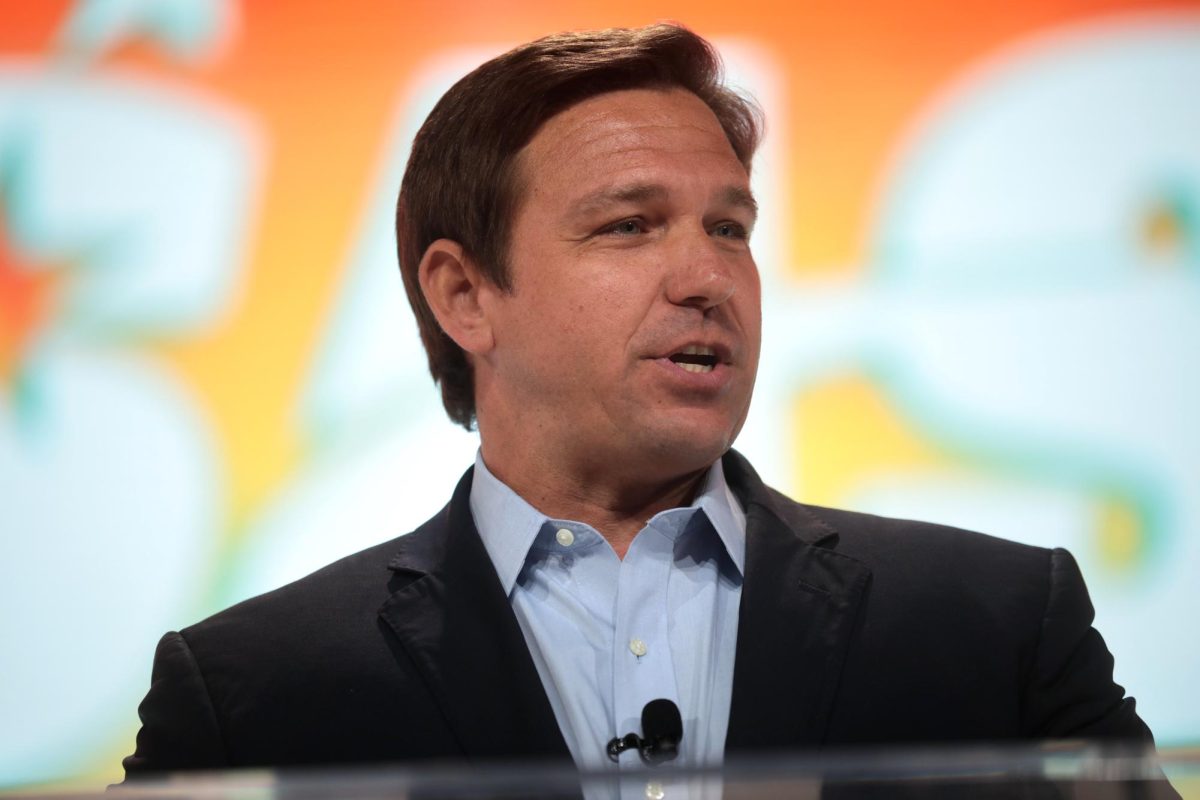
Joe McQueen is a senior journalism major with a minor in political science.
Since the tragic death of George Floyd, it is frustrating to see some white people not proactively addressing the issue of systemic racism and police brutality against Black people in the U.S. Instead, they’ve continued to stay silent about it.
Watching the reaction across the country for the past week has made me angry and sad. The continuation of Black people being killed by police is something I have heard of for most of my life. Whether it’s Breonna Taylor, Philando Castile, Eric Garner or Michael Brown, this pattern of police brutality in the U.S. is a problem our country has neglected to address.
Listening to some white people’s reactions in the aftermath of Floyd’s death has made me quite frustrated. While I appreciate that for the most part, there has been a strong consensus that his death was horrible and outright murder, many white people seem to be more bothered by the rioting and looting of stores in cities like Minneapolis and Atlanta.
While I do not support or encourage violence of any kind, caring more about looting steers away from the bigger issue here – police brutality against Black people is a systemic issue in American police departments.
Addressing the issue of police brutality is the focus of these nationwide protests. Critics are missing the whole point of this movement by solely focusing on the few violent protests that have dominated the media.
When a community is ignored, brutalized and left behind for a very long time, what do you think is going to happen? When their issues aren’t addressed or even publicly discussed, people will go to extreme measures in order to be heard. While destroying and looting Targets is wrong, stores can always be rebuilt. Floyd’s life, along with many other Black lives, can never come back.
I have heard many white people ask why the protesters can’t have peaceful protests like Martin Luther King Jr. Though King’s marches were peaceful, protesters also faced beatings from police. King led marchers from Selma, Alabama to Montgomery to protest for Black voting rights when state troopers used violence to end the march on a day known as “Bloody Sunday.” Also, during the civil rights era of the 1960s, King was not very popular among the American people. A 1966 Gallup poll found 63% of Americans had an unfavorable view of him. Let’s not forget that the FBI spied on him, and his home was bombed by white supremacists.
Trying to refer to King’s peaceful marches at this moment isn’t going to help. Many white people are ignoring what violence he endured in order to fight for civil rights, which is yet another example of whitewashing history. Often the history of the civil rights movement isn’t taught completely in schools and the more violent parts of it are left out.
People have also been complaining about how current actions aren’t the right way to protest. Black people tried to peacefully protest four years ago when San Francisco 49ers quarterback Colin Kaepernick kneeled during the national anthem before football games to shine light on systemic racism and police brutality. Many white people argued that what he did was disrespectful to the American flag and military.
When other NFL players supported Kaepernick’s protest and also began kneeling during the anthem, there was even more backlash from people who often claim to care so much about the First Amendment. Many critics at the time argued that it is Kaepernick’s First Amendment right to protest, but that he shouldn’t be kneeling for the anthem. Kaepernick was trying to use peaceful protests to address police brutality, yet he got blackballed by the entire NFL.
If white people really want to care about this issue, they need to start speaking out about systemic racism. We need to have a national conversation with people of all backgrounds to discuss how we can solve this problem in our society.
We need to address the racist policies our country has implemented in the past like slavery, segregation, redlining and how they resulted in mass incarceration of Black Americans. These policies helped create the racial disparities we see today. Black folks have been denied equal access to things like healthcare, public transportation, education and housing.
White people need to do more than just post black squares on social media. Just saying “I’m not racist,” or “I don’t see color” doesn’t help either. Color blindness just ignores the entire issue of race in America. People need to be anti-racist and publicly fight for reforms to begin dismantling the systems that oppress Black people in the U.S.
If you want to change the current system, become an active participant. Donate to organizations that fight for the rights of Black people like the National Association for the Advancement of Colored People and learn about the history of systemic racism in America. Documentaries like “13th” and the Netflix series “When They See Us” are very informative about the criminal justice system in America and how it disproportionately affects Black people. The New York Times Magazine’s 1619 Project discusses the role slavery played in the development of America, and movies like “Selma” and “12 Years a Slave” highlight what Black people have gone through in America to fight for equality, which they are still battling for today.
It’s time that white people use their voice and privilege to combat the racist systems of America in order to create positive change.


















